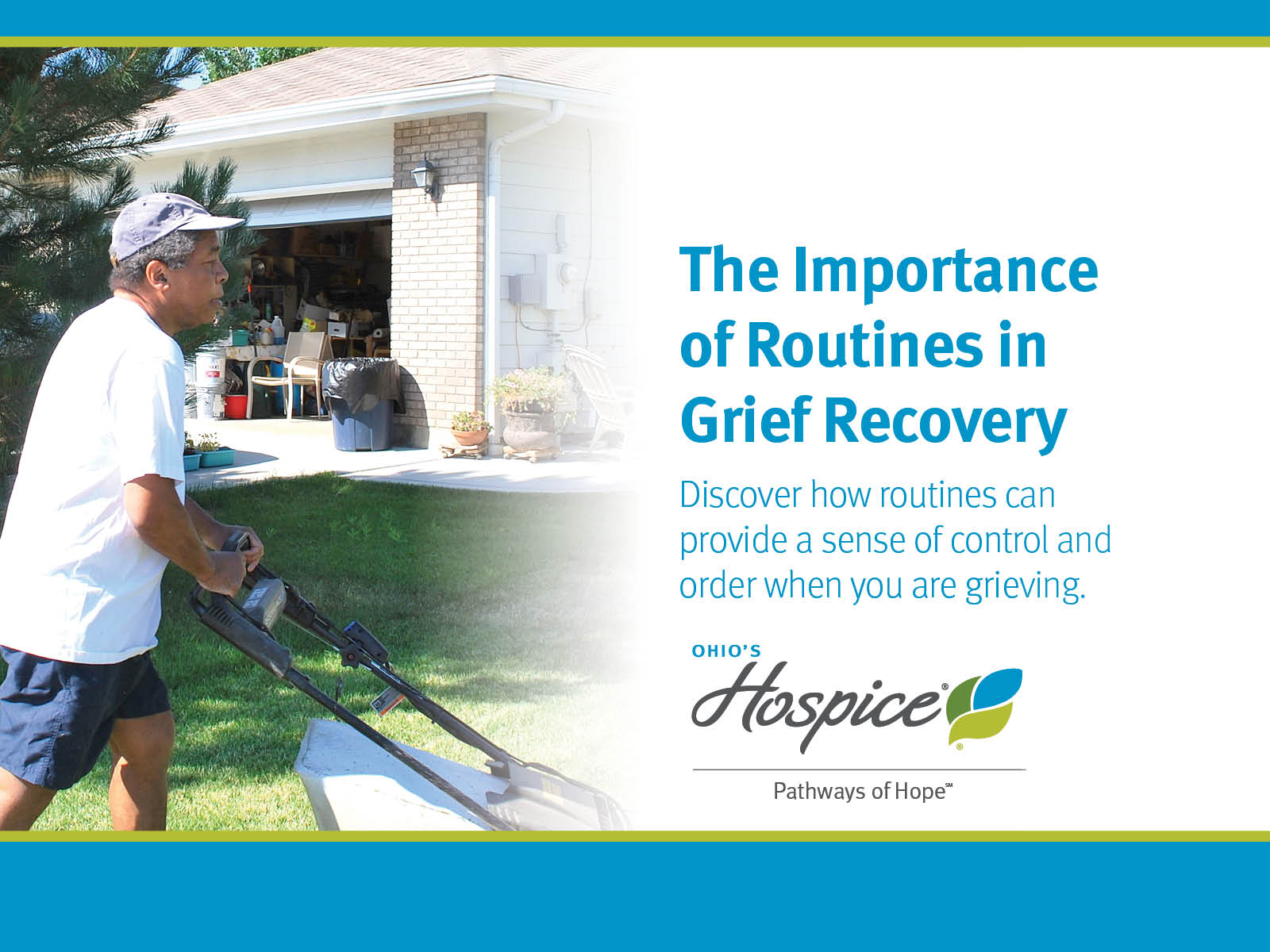The Importance of Routines in Grief Recovery
Wash the dishes. Take the dog out. Pay the bills. Visit Dad in the nursing home. Cut the grass. Bowl on Thursday nights. Babysit the grandkids. Take medicine.

These are the ordinary things of life. Some of them we do on “autopilot.” They range from profoundly mandatory (taking medicine) to the almost trivial (bowling). All of them, however, have one thing in common: they become strenuously challenging, maybe even undoable, in the face of death.
One of the dreadful aspects of grieving is diminished focus. You just can’t quite perform the basic tasks of life with the clarity and specificity you did before your loved one died. Change the bed linens? Forget it. You are lucky to have enough desire to get out of bed. Pay the electric bill? Why? Your loved one is not with you any longer to share your home; it just doesn’t matter anymore.
In the early days, weeks and months of grieving, you don’t want to move at all. Yet, we must move forward. Being able to normalize what we can gives a sense of control and order during emotional, physical, spiritual, and financial chaos. By recognizing the importance of routines, we can help ourselves find strength and hope for the journey.
Here are a few ways we can make that happen:
- Initially, keep it to the bare minimum. Many people throw themselves into some big tasks (e.g., washing down and repainting every wall in the house). They typically do this to stay distracted. Early in the grief journey, we must recognize the value of giving ourselves space to ache, to cry, to be
angry, and to miss our loved one. You got dressed, ate, and practiced nominal personal hygiene. Some days, that’s as good as it gets. - Leave yourself reminders. Your memory is so focused on your loss that you may need a sticky note or two to help you get things done.
- Accept the help of others. There is nothing shameful about asking someone else to put out your trash cans on garbage day or to take over a project at work.
- Pat yourself on the back when you consistently accomplish routine tasks. It may not seem like a big deal to others that you kept yourself in clean clothes for the past few weeks, but it is a big deal to you.
- Try not to take on any new tasks early on.
- Be reminded that keeping a routine, even if it’s substantially fewer things to do than it was before your loved one’s death, is demonstrating to yourself that you can function while grieving.
- If part of your new routine is taking on tasks the enjoyment the two of you had that you did with your deceased loved one (e.g., volunteering, weekly at a soup kitchen), allow yourself to mourn their absence. But, also, celebrate working together.
Pathways of HopeSM Grief Counseling Centers
Ohio’s Hospice offers grief and bereavement support through our Pathways of HopeSM Grief Counseling Centers, which provide a variety of services to the communities we serve. Support and education are provided by a team of counselors and social workers, all with significant experience and expertise in assisting grieving children, adolescents and adults.
For more information about Pathways of Hope, click here.

